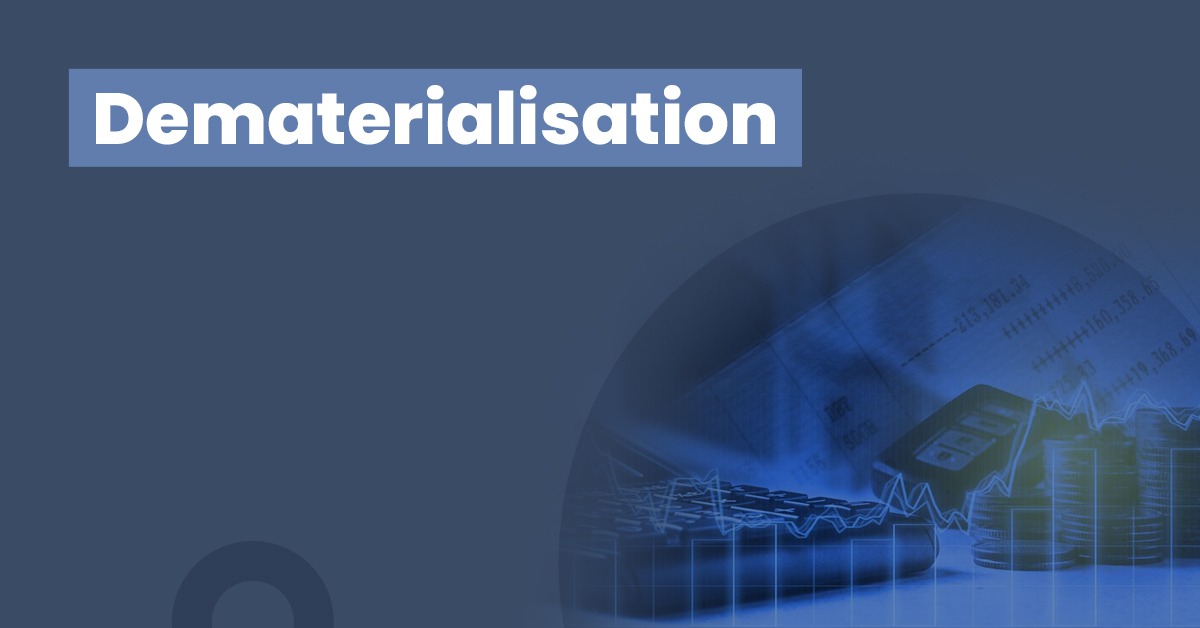India’s financial world is going digital, and so are your shares. Dematerialisation, or “demat,” is the process of converting old-school paper share certificates into electronic form. With a new government deadline of June 30, 2025, most private companies are now required to make the switch, making it easier and safer for investors to manage their holdings.
Key Highlights:
What is Dematerialisation?
Dematerialisation means turning physical share certificates into digital records, held in a demat account. Think of it as moving your stock ownership from a dusty file folder to a secure online account, managed by depositories like NSDL or CDSL.
Why Now?
The Ministry of Corporate Affairs (MCA) has made it mandatory for all private companies (except small ones) to dematerialise shares by June 30, 2025. This rule aims to boost transparency, reduce fraud, and make trading and transferring shares much smoother.
How Does It Work?
Companies must update their legal documents, appoint a Registrar and Transfer Agent, and get a unique ISIN code for their shares. Shareholders open a demat account with a depository participant, submit their physical certificates, and—after verification—see their shares credited electronically.
Benefits for Investors:
Demat shares are easier to transfer, safer from loss or theft, and can be traded instantly. They also make it simpler for companies to manage records and comply with regulations.
What’s Next?
After June 2025, new shares can only be issued in electronic form, and any share transfers or changes must happen digitally.
India’s move to dematerialisation is making investing more secure, transparent, and hassle-free.
Source: IndiaFilings, Qapita, EquityList

